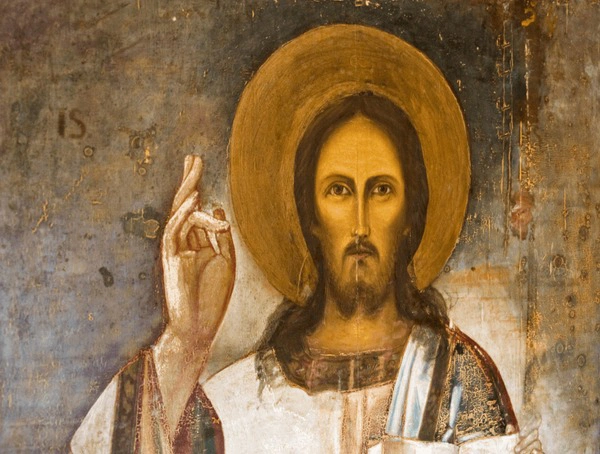
Exploring Matthew 1:11: Jeconiah, the Babylonian Exile, and Their Impact on Israel's Lineage
Matthew 1:11 marks a pivotal moment in biblical history, connecting Jeconiah and the Babylonian exile to the lineage of Jesus Christ. This article explores the significance of this verse, the impact of the exile on Israel, and the lessons for modern believers.
David Walker
26/11/2024 - 7 months ago

Understanding the Lineage in Matthew 1:11
Matthew Chapter 1, Verse 11 holds significant importance as it highlights a crucial moment in the genealogy of Jesus Christ. This verse mentions Jeconiah, a king of Judah, during the Babylonian exile. Understanding this lineage is vital as it connects the promise of the Messiah through David’s line, emphasizing God’s faithfulness to His covenant. This genealogy serves as a bridge between the Old and New Testaments, demonstrating the continuity of God’s plan for salvation.
Jeconiah, also known as Jehoiachin, was a king who ruled Judah during a tumultuous period. His reign was marked by challenges, culminating in the Babylonian exile. The mention of Jeconiah in Jesus' genealogy signifies not just a historical record but a testament to God’s providence and mercy. Despite Jeconiah’s captivity, the lineage continued, showcasing God’s unwavering commitment to His promises.
The Babylonian exile was a pivotal event in Jewish history, influencing the cultural and religious identity of the people. This period of exile was not only a time of punishment but also one of reflection and transformation for the Israelites. It was during this difficult time that the hope for a Messiah became even more pronounced, setting the stage for the eventual arrival of Jesus Christ, the fulfillment of God’s promise.
The Babylonian Exile's Impact on Israel
The Babylonian exile brought significant changes to the people of Israel. It was a time of loss, as the Israelites were taken from their homeland, their temple was destroyed, and their way of life was disrupted. This event was a turning point, forcing the people to rethink their relationship with God and each other. Many scholars believe that this period led to a deeper spiritual renewal among the exiles.
During the exile, the Israelites had to adapt to a new environment while maintaining their cultural and religious identity. This period saw the development of new forms of worship and the reinforcement of Jewish traditions. The exile experience strengthened the community’s resolve to preserve their faith and heritage, contributing to the rich tapestry of Jewish history and identity.
The stories and lessons from the exile period continue to resonate with believers today. They remind us of the resilience of faith in times of adversity and the importance of holding onto God’s promises even when circumstances seem dire. The exile serves as a powerful lesson in trusting God’s plan, knowing that He can turn even the most challenging situations into opportunities for growth and redemption.
- Read Also: Finding Refuge and Justice in God's Embrace
Jeconiah's Role in Biblical History
Jeconiah’s role in biblical history is noteworthy not only because of his position as a king but also due to the implications of his reign. Though his rule was short-lived and ended in captivity, his inclusion in the genealogy of Jesus highlights the transformative power of God’s grace. Jeconiah's story is one of redemption and hope, showing that God’s plans are not thwarted by human failings.
The name Jeconiah means "God will establish," which is fitting given the circumstances of his life and the overarching theme of restoration in his story. Despite the judgment that came upon him and his people, God’s promise of establishing a kingdom through David’s line remained intact. This promise is ultimately fulfilled in Jesus Christ, who comes from the same lineage, reaffirming God’s sovereign plan.
Jeconiah’s mention in Matthew 1:11 serves as a reminder of God’s ability to work through imperfect individuals to achieve His divine purposes. It encourages believers to trust in God’s timing and His ability to use every situation for His glory. Jeconiah’s story is a testament to the hope and restoration found in Christ, offering encouragement to those who feel overwhelmed by their circumstances.
Lessons and Reflections for Today
The account of Jeconiah and the Babylonian exile offers valuable lessons for modern believers. It underscores the importance of maintaining faith during trials and trusting in God’s ultimate plan. As we reflect on the challenges faced by the Israelites, we are reminded of the enduring nature of God’s promises and His faithfulness to His people throughout history.
One key takeaway from this period is the necessity of resilience and adaptability in the face of adversity. The Israelites’ ability to preserve their cultural and religious identity during exile is a testament to their strength and dedication. This resilience is an example for believers today, encouraging us to hold fast to our faith and convictions regardless of the challenges we encounter.
Finally, the story of Jeconiah and the lineage leading to Jesus Christ serves as a reminder of God’s redemptive power. It invites us to see beyond our present difficulties, trusting that God is weaving a larger tapestry of grace and redemption in our lives. As we embrace this truth, we are empowered to live out our faith with boldness and intentionality, knowing that we are part of a greater narrative of hope and salvation.




















